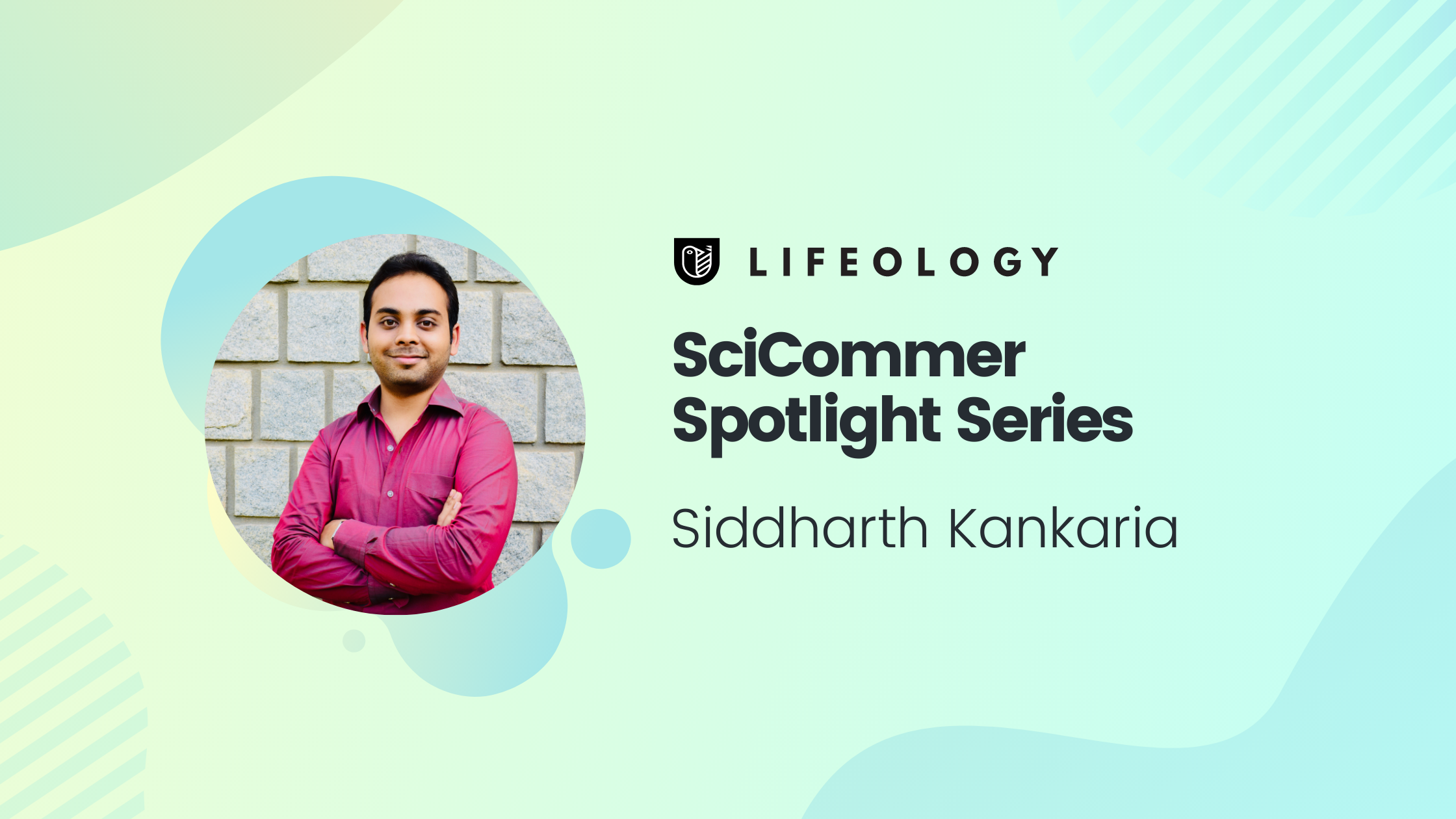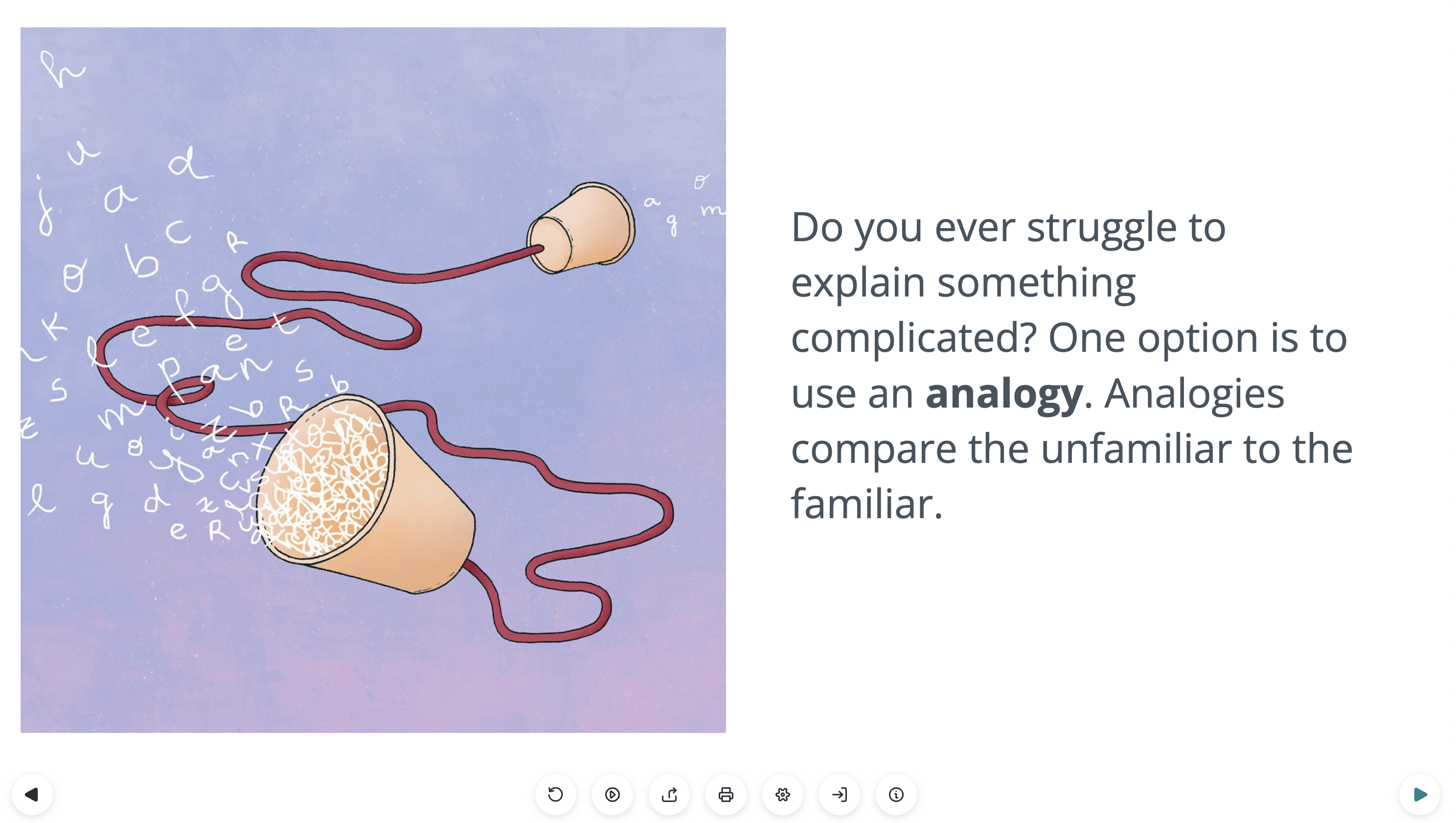We hear a variety of answers to the question: “Why SciComm?” No two SciComm careers look the same! If you’re interested in SciComm, there’s room for you here! If you want to pivot within the SciComm space, there’s room for that, too! Find what interests you with the help of hearing from a variety of SciCommers. Many have left the lab bench for a chance to expand their scientific knowledge beyond their single area of expertise. Others still work as scientists but engage with and serve the public through science communication. Some people even knew early on that they wanted to pursue science communication. We bring you all these stories and the stories in between in our SciCommer Spotlight Series. In this series of blog posts, learn about science communicators’ career paths, their favorite SciComm projects, and why they participate in SciComm. There’s also some advice for aspiring SciCommers!
Meet Siddharth Kankaria!

Tell us a little bit about yourself
I am a science communication practitioner and researcher interested in developing community-centric, evidence-based and intersectional science engagement practices for the Global South. I’ve been working in SciComm for more than 5 years now, and I currently work as the Communications & Program Coordinator at the Simons Centre at NCBS Bangalore. I’m also the Founder of SciCommSci Club–a flagship initiative for engaging with the science of science communication.
Did you always want to be a SciCommer?
Growing up, I was always interested in both the natural sciences and humanities and felt uncomfortable with the false dichotomy imposed between the two areas of study. Forced to pick one eventually, I decided to pursue my interests in biology and ended up progressively ‘differentiating’ within the field as the years went by. I was quite sure of pursuing an academic career in science, and I also worked at a molecular biology lab as part of my bachelor’s dissertation for more than a year where I continued learning the nuances of both theoretical and experimental biology until I graduated. But by the end of my four-year BS (research) degree in biology, I was quite burnt out and felt disenchanted with the prospect of being a full-time researcher.
I decided to take a sabbatical (against everyone’s advice) and reflect on what else I could do. Fortunately, all throughout this journey I had still stayed in touch with topics within the humanities–through elective courses, writing for my college magazine and leisurely reading–and wanted to see if I could get back to it more formally. This was also the time when I had serendipitously discovered science journalism and science communication as a career. I wasn’t quite sure if it would be a viable career at that time, and I applied to a 2-week science journalism workshop to ‘test the waters’. I really enjoyed this experience and was able to network with a lot of people in SciComm. Before I knew it, I was interning with a science journalist and had a couple of SciComm job offers lined up. I decided to join a multimedia SciComm start-up called Research Matters, and I worked there as a Content Editor for more than a year.
There’s a lot of different careers within SciComm. How did you choose which direction you wanted to go?
My experiences of working in a full-time SciComm job turned out to be a great way to combine my training and skills in the natural sciences with my interests and inclination towards the humanities. It also gave me a lot of insights about the breadth and scope of the field of SciComm and made me more confident about pursuing a career in science engagement. But I still wanted to learn and explore more before deciding on a particular direction to pursue within SciComm.
I decided to do a formal degree in the field, and joined the University of Edinburgh for MSc in Science Communication & Public Engagement. The course exposed me to a rich diversity of topics within public engagement, science policy, science education, knowledge brokering, and science-art interfaces. It also introduced me to a vast repository of research in science communication, which has since then been instrumental in a lot of my current work. Additionally, I was also able to build-up a portfolio of work experiences through part-time jobs, volunteering opportunities, and work placements at organisations like the Edinburgh International Science Festival, Pint of Science, and EuroStemCell, respectively.
With a rich set of theoretical and practical experiences within SciComm both in India and the UK, I decided to return back to India to contribute and apply my learnings back home and joined the Simons Centre at NCBS Bangalore as their Science Communication and Outreach Manager. A year later, I also founded the SciCommSci Club to try and build a community of practice around evidence-based SciComm and engage people with the science of science communication. My current work at NCBS Bangalore & the SciCommSci Club thus spans across the research-practice continuum of science communication, and incorporates a rich mix of capacity-building, mentorship, policy, and DEI efforts.
What’s been your favorite part about working in SciComm?
My favourite part about working in SciComm is the ever-expanding scope for mutual learning, interdisciplinary networking and overall growth. For instance, as part of my job, I get to work and collaborate with a wide range of scientists, journalists, social scientists, designers, artists, poets, and thespians. I was also involved in facilitating some policymaking efforts last year that allowed me to network and interact with a wide variety of stakeholders. Similarly, contributing to mentorship efforts within SciComm has also led to a lot of mutual learning and reflections for me, personally. Being in such an environment of growth, exploration and learning also positively influences one’s humility, empathy and work ethics, and this is one of the best parts about working in SciComm!
What’s something about SciComm that you wish you knew before pursuing this career?
That’s it not really an “alternate science career” and there’s nothing less ideal about choosing a career in SciComm over being a laboratory-based researcher. There seems to be a lot of (personal as well as) societal stigma around leaving an academic career in science, and this can be really counter-productive in the long-run. Moreover, only a small percentage of science graduates end up becoming academic researchers, and by that logic non-academic science careers should really be the norm rather than an exception!
What do you think is your most important job as a SciCommer?
I think a SciCommer’s most important job is to help bridge differences of information, experiences as well as values between groups of people by facilitating meaningful interactions between them. Doing so requires not only effective communication skills, but also empathy, active listening and respect for stakeholders and their respective contexts.
In that context, my most important job as a SciCommer has always been community-building–and this can occur in very different ways ranging from engaging different audiences with STEM-based knowledge, acknowledging and including the voices of different stakeholders, training and mentoring upcoming SciCommers, building communities of practice around evidence-based SciComm, or even pushing academic ecosystems to address issues of access, diversity, equity and inclusion!
Tell us about your favorite SciComm project
My favorite (long-term) SciComm project would definitely be the SciCommSci Club – a discussion, networking and mentorship forum that I set up for engaging people with the science of science communication (or SciCommSci) and bridging the divide between science communication research and practice. As part of this project, we have engaged in several community-building efforts, organised featured research talks and workshops, facilitated the synthesis of a national science communication policy for India, built a database of Indian science communicators, contributed to training and capacity-building efforts, and mentored many science communication practitioners.
What advice do you have for aspiring SciCommers?
Never underestimate the power of networking! Effective networking can be an invaluable tool in a rapidly emerging field like science communication and can expose you to new developments in the field, connect you with relevant work and professional development opportunities, and can provide you with timely advice, mentorship and professional support.
Further, developing a strong professional network of not just people vertically within your field, but also of people horizontally across different fields can be a really useful skill to master. Some of the best work opportunities and projects I’ve managed to bag were only made possible because of effective networking, and I would strongly encourage aspiring SciCommers to try and practice this skill early on!
What do you like to do when you are not SciComm-ing?
Apart from SciComm’ing, I’m really fond of cooking and can often be found nestled away in my kitchen experimenting with and (re)creating new recipes!




